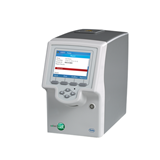The model, called MMRpro, is based on an individual's detailed family history of colorectal and endometrial cancer, as well as knowledge of how genetic mutations manifest themselves-in the form of tumors. It can assess a person's probability of carrying a particular defect within so-called mismatch repair genes.
Genetic defects can be passed from parents to their children; as a result, colon cancer runs in families. Our model will help identify individuals likely to have particular genetic defects. The results will give them useful information about their colon cancer risk before they decide whether to undergo invasive screenings or expensive genetic testing," said Sining Chen, PhD, lead author of the study and an assistant professor in the Johns Hopkins Bloomberg School of Public Health's departments of Environmental Health Sciences and Biostatistics.
Lynch syndrome, also known as hereditary nonpolyposis colorectal cancer, is characterised by the inheritance of defects in the MLH1, MSH2 and MSH6 genes. These three genes help repair mismatches that can occur during the duplication of the genetic code when new cells are made, and are known as mismatch repair (MMR) genes. Of the projected 600,000 MMR mutation carriers in the United States, each has approximately a 50 percent chance of being diagnosed with colorectal cancer by age 70. Women also have a 50 percent chance of developing endometrial cancer, explained Giovanni Parmigiani, PhD, senior author of the study and a professor of oncology, biostatistics and pathology at Johns Hopkins University.
The researchers applied MMRpro software to 279 individuals' family histories. The study participants were tested with sensitive laboratory mutation-detection techniques. MMRpro predictions were compared to the laboratory test results, as well as predictions made with widely used assessment guidelines.
The researchers found that MMRpro more accurately predicted mutation carriers than two other assessment tools-the Bethesda guidelines and the Amsterdam criteria- that are currently available to families faced with the possibility that they have inherited the genetic defects related to colon cancer. MMRpro can identify more mutation carriers and fewer non-carriers than other assessment tools. MMRpro was able to assess individuals who already have cancer as well as those who do not. Existing assessment tools can only be applied to individuals with cancer. In addition, certain MMR genetic mutations are hard to detect in laboratory tests. MMRpro was able to provide a useful risk assessment when conventional laboratory tests did not find a genetic mutation.
"Colorectal cancer is the second largest cause of cancer deaths in the US. It is also one of the most preventable forms of cancer. We expect that MMRpro will contribute significantly to controlling the disease by prioritising high risk individuals for intensive screening and early detection," said Chen. "We also expect that it will be a tool for investigators interested in understanding inherited colorectal cancer, allowing them to select families to more efficiently study these genetic defects."
- Suppliers
- New to MedicalSearch? Book a Demo
- Advertise with us
- Login
- Email Marketing
- Buyers
- Get Quotes
- Articles & Ideas
- Login
- Subscribe to newsletter
- My Details
- Get Quotes
- Accident & Emergency Care
- Aged Care & Disability
- Anaesthesia & Respiratory Care
- Beauty & Wellness
- Cardiology & Cardiac Surgery
- Commercial Cleaning & Laundry Supplies
- Dental Care & Oral Surgery
- Diagnostic Instruments & Medical Imaging
- Disinfection & Sterilisation
- ENT & Audiology
- Gynaecology & Obstetrics
- Homecare & Consumer Medical
- Hospital Equipment & Supplies
- Intensive Care Unit
- Laboratory & Pathology
- Medical Apparel
- Medical Devices & Products
- Medical Fridges & Freezers
- Medical Storage & Filing
- Medical Waste Management
- Optometry & Ophthalmology
- Orthopaedics & Podiatry
- Paediatrics & Neonatology
- Patient Monitoring & Management
- Physiotherapy & Rehabilitation
- PPE & Infection Control
- Single Use Medical Consumables
- Surgical Tools & Supplies
- Treatment Beds, Tables & Couches
- Veterinary Equipment
- Wheelchairs & Mobility Aids
- Get Quotes
- Accident & Emergency Care
- Aged Care & Disability
- Anaesthesia & Respiratory Care
- Beauty & Wellness
- Cardiology & Cardiac Surgery
- Commercial Cleaning & Laundry Supplies
- Dental Care & Oral Surgery
- Diagnostic Instruments & Medical Imaging
- Disinfection & Sterilisation
- ENT & Audiology
- Gynaecology & Obstetrics
- Homecare & Consumer Medical
- Hospital Equipment & Supplies
- Intensive Care Unit
- Laboratory & Pathology
- Medical Apparel
- Medical Devices & Products
- Medical Fridges & Freezers
- Medical Storage & Filing
- Medical Waste Management
- Optometry & Ophthalmology
- Orthopaedics & Podiatry
- Paediatrics & Neonatology
- Patient Monitoring & Management
- Physiotherapy & Rehabilitation
- PPE & Infection Control
- Single Use Medical Consumables
- Surgical Tools & Supplies
- Treatment Beds, Tables & Couches
- Veterinary Equipment
- Wheelchairs & Mobility Aids
Trusted by 740,000 Australian medical buyers
Buyers
- Discover products & solutions
- Login
- Subscribe To Newsletter
- Browse All Products
- Read Articles
Suppliers
Advertise
- Promote your products & solutions
- New to MedicalSearch? Book a Demo
- Login / Forgot Password
- Advertise Your Products
- Success Stories
- Email Marketing
- Suppliers
- Advertise with us
- Login
- Email Marketing
- Buyers
- Get Quotes
- Articles & Ideas
- Login
- Subscribe to newsletter
- My Details
Get Quotes
- Accident & Emergency Care
- Aged Care & Disability
- Anaesthesia & Respiratory Care
- Beauty & Wellness
- Cardiology & Cardiac Surgery
- Commercial Cleaning & Laundry Supplies
- Dental Care & Oral Surgery
- Diagnostic Instruments & Medical Imaging
- Disinfection & Sterilisation
- ENT & Audiology
- Gynaecology & Obstetrics
- Homecare & Consumer Medical
- Hospital Equipment & Supplies
- Intensive Care Unit
- Laboratory & Pathology
- Medical Apparel
- Medical Devices & Products
- Medical Fridges & Freezers
- Medical Storage & Filing
- Medical Waste Management
- Optometry & Ophthalmology
- Orthopaedics & Podiatry
- Paediatrics & Neonatology
- Patient Monitoring & Management
- Physiotherapy & Rehabilitation
- PPE & Infection Control
- Single Use Medical Consumables
- Surgical Tools & Supplies
- Treatment Beds, Tables & Couches
- Veterinary Equipment
- Wheelchairs & Mobility Aids
Get Quotes
- Accident & Emergency Care
- Aged Care & Disability
- Anaesthesia & Respiratory Care
- Beauty & Wellness
- Cardiology & Cardiac Surgery
- Commercial Cleaning & Laundry Supplies
- Dental Care & Oral Surgery
- Diagnostic Instruments & Medical Imaging
- Disinfection & Sterilisation
- ENT & Audiology
- Gynaecology & Obstetrics
- Homecare & Consumer Medical
- Hospital Equipment & Supplies
- Intensive Care Unit
- Laboratory & Pathology
- Medical Apparel
- Medical Devices & Products
- Medical Fridges & Freezers
- Medical Storage & Filing
- Medical Waste Management
- Optometry & Ophthalmology
- Orthopaedics & Podiatry
- Paediatrics & Neonatology
- Patient Monitoring & Management
- Physiotherapy & Rehabilitation
- PPE & Infection Control
- Single Use Medical Consumables
- Surgical Tools & Supplies
- Treatment Beds, Tables & Couches
- Veterinary Equipment
- Wheelchairs & Mobility Aids
Trusted by 740,000 Australian medical buyers














-160x160-state_article-rel-cat.png)

-160x160-state_article-rel-cat.png)




